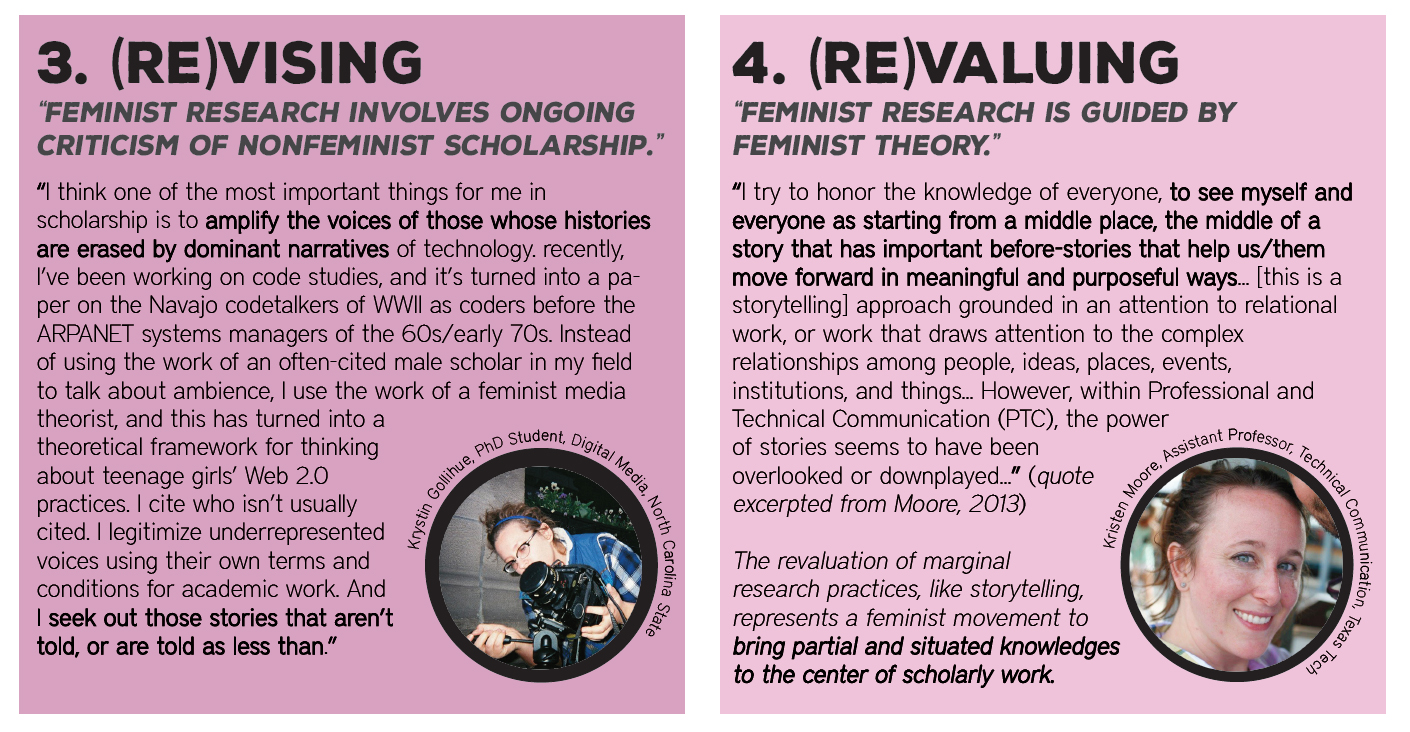Shulamit Reinharz’s Feminist Methods in Social Research (1992) is considered the foundational textbook on feminist research methodologies, detailing the deployment and embodiment of feminist theory in a variety of methods, including ethnography, interviews, content analysis, action research, and more. Reinharz identifies ten overarching themes that guide feminist research throughout this book, defining the methodological underpinnings of this tradition as “involving an ongoing criticism of nonfeminist scholarship… aiming to create social change… and developing special relations with the people studied and with the reader” (Reinharz, 1992, p. 240). While Reinharz approaches research from a sociological perspective, her analysis and recommendations have frequently been deployed in the humanities as well.
Now, nearly 25 years later, feminist methodologies are undergoing an expansive and pluralistic reinvention through the work of scholars shaped by the circulation of new feminisms through participatory, user-driven web 2.0 platforms. This poster offers an update to Reinharz’s ten themes through the writings, research, and methodological commitments of scholars from a variety of fields currently engaging in feminist work in and with digital technology. The case studies and reflections presented provide insight into the state of humanistic feminist research in a digitally networked age, as well as methodological practice and interventions that readers can adapt for their own research and teaching.
Reinharz (Re)visited: (Techno)feminist Methodologies for Digital Humanities and Beyond by Allegra Smith
